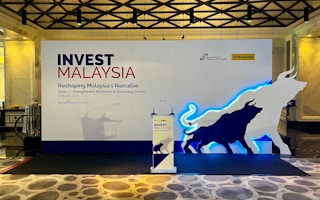Stock exchange regulator Bursa Malaysia is joining hands with its counterpart in the United Kingdom to roll out a centralised sustainability reporting platform by next month, announced Malaysian prime minister Anwar Ibrahim.
“This [platform] will enable companies, both public listed companies as well as non-listed small- and medium-sized enterprises (SMEs), to calculate their carbon emissions impact,” said Anwar on Wednesday at Invest Malaysia 2023. The annual investor conference, co-hosted by Bursa Malaysia and Maybank, was held at The St. Regis, Kuala Lumpur, Malaysia.
The joint platform is one of many latest initiatives highlighted in Anwar’s speech that look at helping Malaysian companies keep pace with the growing global momentum on sustainable development. These include a commitment from the government to commit RM10 million (US$2.21 million) of seed funding to act as “assured demand” of Malaysian-generated carbon credits to “kickstart the market”, as described by Anwar, who said that the government looks forward to firms optimising Malaysia’s voluntary carbon market or the Bursa Carbon Exchange, launched in December last year.
On the centralised sustainability reporting platform, Anwar said that it will help companies disclose standardised common environmental, social and governance (ESG) data in a way that conforms to established global standards.
“This platform has the potential to be a key enabler to Malaysia’s pivot to green, and to support our sustainable development, while creating high skill jobs for our progress towards a high-income nation,” he said.
Bursa Malaysia currently uses the FTSE4Good methodology to rank companies on its ESG index, named the FTSE4Good Bursa Malaysia Index. The methodology is designed by global index provider FTSE Russell, owned by the London Stock Exchange.
The stock exchange regulator also rolled out an ESG advisory service last year that uses the methodology as what it referred to as a “transitional platform” to assist public listed companies (PLCs) in identifying ESG risks and improving their disclosure and standards.
Speaking to Eco-Business on the sidelines of the conference, Chong Kok Wai, the group head of legal, compliance and sustainability at GHL Systems Berhad, a Malaysian PLC and payment solutions provider, said that the platform will be extremely beneficial for PLCs as it could potentially cut short the time spent engaging with non-listed suppliers (which are not part of the reporting framework) on measuring and reporting emissons.
Chong said that GHL Systems Berhad has started its engagement with supply chain providers, and will be asking the suppliers it engages with to monitor their emissions next. “With this platform, we can get them on board easily,” he said, highlighting that Scope 3 emissions reporting or tracking indirect supply chain emissions is what worries the firm the most, and that the new platform could potentially reduce these woes.
Chong anticipates that consultants selling sustainablity reporting advisory services, which are usually costly, will stand to lose with the launch of the platform. “If the platform is free [and provided by] Bursa, then that will result in cost savings for PLCs,” said Chong.
He believes there will also be a positive impact for SMEs. “We deal with a lot of merchants and SMEs. It will be great when all of them can come together and start reporting. It is beneficial to the sustainability community.”
Weaning off fossil fuels
Challenges in the push for renewables and weaning off a strong dependence on oil and gas were also discussed at the investor conference.
Economic minister Mohd Rafizi Ramli, speaking at one of the panel sessions, warned that natural gas, which Malaysia is reliant on for power is finite. “If we continue at the current rate of gas consumption in our power sector, there will come a point not too long in the future when we will have to start thinking about importing LNG (liquefied natural gas),” he said.
Malaysia has long been dependent on the oil and gas sector as a primary source of both energy and revenue. Over 91 per cent of the country’s energy comes from fossil fuels. It is the second largest producer of oil in Southeast Asia, and the world’s third largest exporter of LNG.
“The best way for us to loosen this dependency is to push for more alternatives and substitutes to gas,” said Rafizi. One option the state is looking at is the use of biomass energy – energy derived from organic material – which in Malaysia’s case includes that from agricultural waste, palm oil and forest residues. “The technology is there and it is within our system. It is just that before, it was, in my opinion, left to the industry to make that decision.”
The government should play an increasing role in steering Malaysia towards clean energy and to remain competitive, said Rafizi. This could be in the form of larger incentives and grants. “If we were to leave it to the market to pivot themselves and wait for organic growth, we would not be able to keep up the growth and pace that we need to become a regional leader [in green energy].”

















